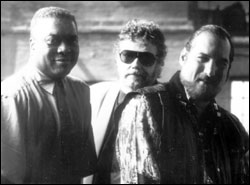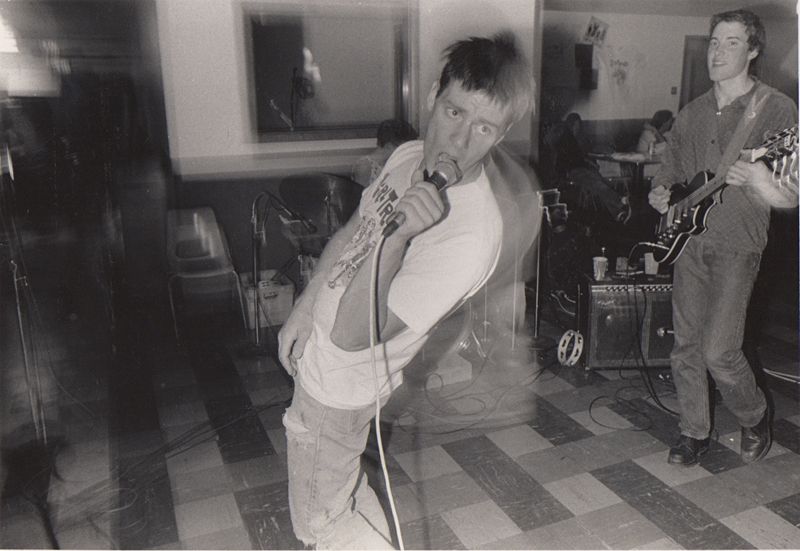YOU’D EXPECT ANY conversation with legendary guitar player Steve Cropper to touch on Stax Records, where he played on a string of chart-topping records, as well as artists he’s played with like Bob Dylan, Albert King, and John Belushi. But you wouldn’t necessarily expect Cropperthe most acclaimed studio guitar player in historyto still speak about these players with the kind of reverence that suggests they are in the room. “Otis,” he says, speaking with a slight Southern-gentleman twang, “well, you know, he was our top guy, and he was much bigger in Europe than he was in the States.” This is Cropper’s introduction to how he and Otis Redding wrote “(Sittin’ on) The Dock of the Bay,” but in reciting this oft-told tale, it’s as if Cropper can channel Redding. “Otis and I knew we needed a song that would cross overwe had to get out of the stigma of ethnic rhythm and blues and break out of that. And the minute we wrote ‘Dock of the Bay,’ we looked at each other and said, ‘This is the one that’s going to do that.’ It put Stax on the map.”
For a player with one of the most esteemed résumés in rock historyhe also co-wrote “Knock on Wood” and “In the Midnight Hour,” among dozens of othersCropper is modest, and still in demand. He returns to Seattle with Booker T. & the MG’s for a show at the Pier, i.e., Seattle’s dock of the bay. Though Mojo labeled Cropper the second-greatest guitarist of all time after Jimi Hendrix, the 61-year-old still can’t talk about his own legend without mentioning the Stax band. Cropper and bass player Donald “Duck” Dunn have been a unit since the sixth grade: “Duck and I have a positive inner sense. We know whether the other musicians we are working with really respect this music we are playing. It’s not about usthere is an honor in this music, and we carry that with us.”
Much of that honor comes to Cropper from having been in the studio with legends such as Redding and drummer Al Jackson Jr., both dead now but with ghosts that Cropper reveres. “Duck and I still carry inside us the Al Jackson beat,” he says. “We know where that groove is, no matter what drummer is with us, and we know where Al Jackson would put it. So we drive that thing. There’s a lot more to it than just the licksit’s why he played the licks.” In explaining the phenomenal string of hits that Stax enjoyed in the late ’60s, he simply says, “Yeah, we had a nice run there.”
One of the only times Cropper seems to show ego is when the discussion dips briefly on the rivalry between Stax and Motown. “We really weren’t in competition with Motown,” he says. “Motown’s sights clearly were on the pop charts. We dealt more with the ethnic charts and the R&B charts, where we got radio play.” If the recent film Standing in the Shadows of Motown brought attention to Motown’s house band, the title might be a more apt description for Stax Records before Otis Redding broke. “Even though Otis left us,” Cropper says, “he left us with a lot of doors open.”
He’s equally proud of his work with Booker T. and the classic “Green Onions,” one of many moments in Cropper’s career that he says simply came out of happenstance. “We were all in the studio for a demo session with a singer who didn’t show up,” he recalls. “We had time on our hands, so we were just jamming on some blues. But the engineer ran a tape. If you hear ‘Green Onions’ on the radio, it still sounds as fresh as if it were cut just last month.”
If Cropper has a single regret in his long and storied career, it comes from the fact that the MG’s missed Woodstock because Al Jackson Jr. was afraid to ride in a helicopter. But he admits that missing that festival helped keep the band from being overexposed. He says he can’t explain why, four decades after his career began, he’s still a cover subject for guitar magazines. “I guess it’s because I’m still alive and that music is still alive.”
Yet even for a man who truly seems modest, Cropper still has a special place for the classic songs he wrote. “I still get a kick out it,” he says slyly. “When I’m listening to the radio, and ‘In the Midnight Hour’ or ‘Knock on Wood’ or ‘Dock of the Bay’ comes on, I turn it up because it sounds good.”








